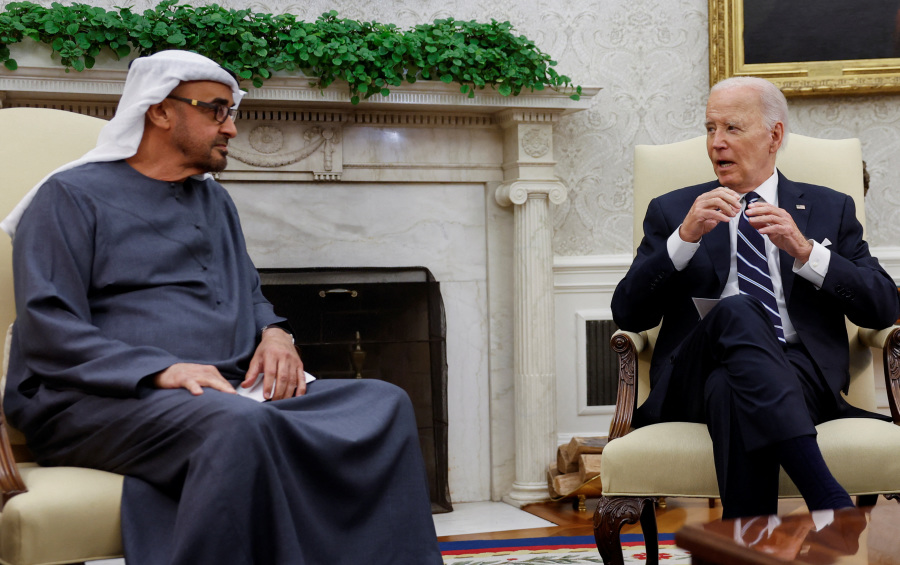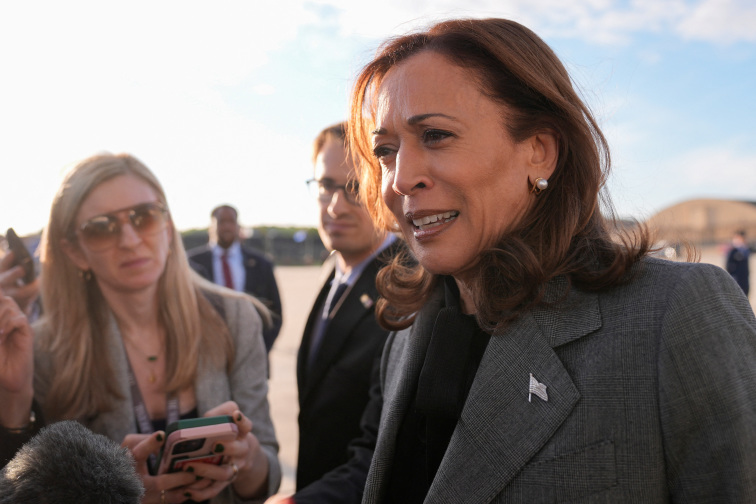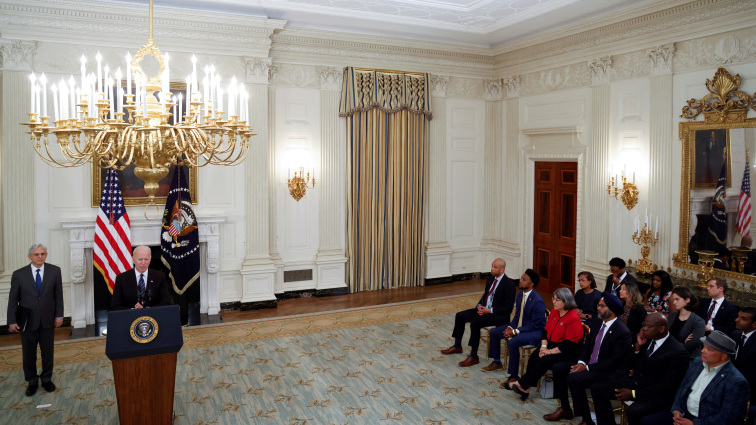U.S. President Joe Biden attends a bilateral meeting with United Arab Emirates President Sheikh Mohamed bin Zayed Al Nahyan, in the Oval Office at the White House, in Washington, U.S. September 23, 2024. (REUTERS/Evelyn Hockstein)
WASHINGTON (Reuters) -U.S. President Joe Biden welcomed the president of the United Arab Emirates to the White House on Monday, saying the two leaders would discuss ways to deescalate tensions between Israel and Lebanon, and efforts to secure a ceasefire in Gaza.
Biden and Vice President Kamala Harris will meet separately with UAE President Sheikh Mohamed bin Zayed Al Nahyan, the first in what are expected to be a series of foreign leader gatherings during the week of the United Nations General Assembly.
Biden, speaking at the start of his meeting with the UAE leader, said Lebanon and Gaza would feature prominently in their discussions, along with talks on artificial intelligence.
Before their meeting, Biden said he had been briefed on latest developments between Israel and Lebanon, adding, "I continue to be in contact with our counterparts and we're working to deescalate in a way that allows people to return home safely."
Sheikh Mohamed said his country had an "unwavering commitment" to working with the United States and deepening the strategic partnership between the allies.
Harris also plans to discuss efforts to secure a Gaza ceasefire and hostage deal in her separate meeting with the UAE leader, the first ever visit by a UAE president to the White House, the White House official said.
The meeting will give Harris, the Democratic nominee for the Nov. 5 presidential election, an opportunity to demonstrate national security chops at a time when the administration is under increasing pressure to contain strife in the Middle East.
Israel attacked hundreds of Hezbollah targets on Monday in airstrikes which Lebanese health authorities said killed at least 274 people, making it the deadliest day in Lebanon in decades and ramping up nearly a year of conflict with its Iran-backed enemy.
After almost a year of war against Hamas in Gaza on its southern border, Israel is shifting its focus to its northern frontier, from where Hezbollah has been firing rockets into Israel in support of its ally Hamas.
The talks at the White House are also expected to include discussions on the Gulf state's involvement in the Sudan conflict and its plans for artificial intelligence, an ambitious effort also drawing interest from U.S. geopolitical rival China.
(Reporting by Gabriella Borter, Andrea Shalal and Trevor Hunnicutt, Editing by Nick Zieminski)











News magazine bootstrap themes!
I like this themes, fast loading and look profesional
Thank you Carlos!
You're welcome!
Please support me with give positive rating!
Yes Sure!